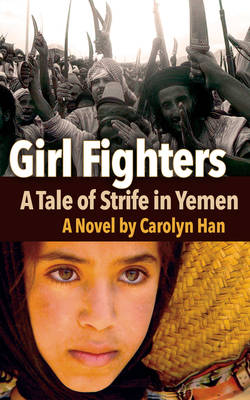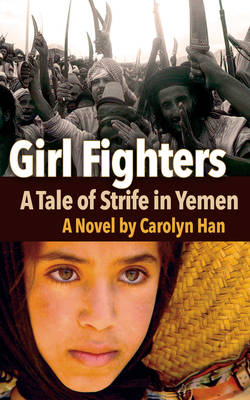
- Afhalen na 1 uur in een winkel met voorraad
- Gratis thuislevering in België vanaf € 30
- Ruim aanbod met 7 miljoen producten
- Afhalen na 1 uur in een winkel met voorraad
- Gratis thuislevering in België vanaf € 30
- Ruim aanbod met 7 miljoen producten
Omschrijving
The characters in our story are two cousins who dress as males and are known as Mohammed and Ali. The men in their family have died in war. The girls feel it is their duty to seek revenge, the code of honor in tribal society. However in Yemen girls are hidden from public view-behind walls, doors, and veils. When Mohammed and Ali decide to seek revenge, they ironically violate another tribal expectation: that fighters be males.
At first, Mohammed and Ali are inspired by their act of resistance. The war was compelling, a "noble cause." Later, they come to realize that war benefits corrupt political leaders and business interests, both local and international. Against the backdrop of war they gain new perspectives. Taking off veils and dressing as men opens their eyes to gender inequities. They question female roles in tribal society. For example, boys can be educated at mosques, but girls cannot attend schools.
Mohammed plans to open a girl's school when the war ends. Ali is a military medic. When Ali is killed, Mohammed confronts loss and guilt. She cannot return to her former life. The dream of educating girls cannot happen as a "man." In tribal society, as "a woman" she must marry and produce children. Against the odds, Mohammed reshapes her life as leader in the community.
Specificaties
Betrokkenen
- Auteur(s):
- Uitgeverij:
Inhoud
- Aantal bladzijden:
- 162
- Taal:
- Engels
Eigenschappen
- Productcode (EAN):
- 9781951082239
- Verschijningsdatum:
- 16/01/2024
- Uitvoering:
- Paperback
- Formaat:
- Trade paperback (VS)
- Afmetingen:
- 152 mm x 229 mm
- Gewicht:
- 226 g

Alleen bij Standaard Boekhandel
Beoordelingen
We publiceren alleen reviews die voldoen aan de voorwaarden voor reviews. Bekijk onze voorwaarden voor reviews.











